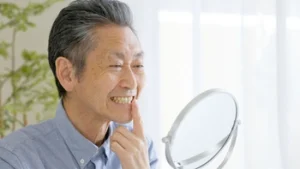Accidents can happen at any time, on the field, at school, or even at home. Knowing what to do when a tooth is knocked out can make a big difference in saving it. Whether it’s an adult tooth, baby tooth, or part of a broken tooth, quick and correct first aid can help reduce pain, prevent further dental trauma, and improve the chances of proper healing.
In this article, we’ll walk you through the steps for tooth knocked out first aid, including what to do for children, what not to do, and when to see a dentist. We’ll also cover common scenarios like chipped or cracked teeth, avulsed teeth, and how to handle dental emergencies during or after sports like football, rugby, soccer, basketball, or netball.
First Things First: Stay Calm and Act Fast
If a tooth is knocked out, time matters. You have only a few seconds to minutes to act before the tooth begins to dry out or the tissue around it is damaged.
- Find the Tooth Quickly
Carefully locate the tooth. Handle the tooth by the crown (the top white part you see when you smile), not the root surface, which is the yellowish, pointy part. Touching the root can damage delicate cells that help the tooth bond with the bone and gums later. - If the Tooth Is Dirty, Gently Rinse It
Use clean water to gently rinse off dirt. Do not scrub or use soap or chemicals. - Keep the Tooth Moist
Never let the tooth dry. You can:- Place it back in the gum if it’s an adult permanent tooth and the person is conscious and cooperative.
- Store it in milk, saline, or the injured person’s saliva.
- Place it in a clean container if milk isn’t available.
- Seek Professional Help Immediately
Get to a dentist as soon as possible. The faster you act, the better the chances of saving the tooth. Timely professional care is crucial for protecting the tooth, surrounding tissues, and long-term oral health.
Tooth Knocked Out: Baby vs Adult Teeth
Different steps apply depending on whether it’s a child or adult tooth.
When a baby tooth is knocked out:
 Baby teeth need different care to avoid harming the developing adult tooth.
Baby teeth need different care to avoid harming the developing adult tooth.
- Do not try to put it back in the mouth.
- A knocked-out baby tooth may damage the underlying adult tooth or developing permanent tooth underneath.
- Instead, keep the tooth moist and seek immediate advice from a dentist to ensure no broken tooth fragments remain and that there’s no injury to the gums or other teeth.
- Even though primary or milk teeth are temporary, improper handling can affect the permanent tooth sitting underneath.
When an adult permanent or secondary tooth is knocked out:
Quick action is vital to help the adult tooth reattach and survive.
- Try to place the tooth back in place (if possible).
- If not, use the moisture options above.
- The sooner you get help, the higher the chance that the tooth in place can heal and reattach.
When a child knocks out a baby tooth, it might seem minor, but some knocked-out baby teeth can affect the underlying adult tooth, especially if the baby tooth could fuse to the bone. In some cases, the developing permanent tooth underneath may shift, leading to future alignment issues. For adults, a knocked-out permanent tooth can often be saved if handled correctly and seen promptly. This is why it’s important to see a dentist immediately.
Sports and Dental Injuries: Prevention Matters
Dental injuries, such as knocked-out adult permanent teeth, are common during contact sports like rugby, soccer, basketball, football, netball, and water polo. They often result in avulsed teeth, chipped or cracked teeth, or broken teeth when training.
Tip: Wear a Mouthguard
A custom-fitted mouthguard can significantly reduce the risk of dental injuries, especially for children with baby teeth or adults with permanent teeth.
Tip: Include a Tooth-Saving Kit in Your First Aid Kit
Many first aid kits now include tooth-saving solutions or containers. If you don’t have one, keep clean containers or plastic wrap handy during sports events.
Signs to Watch For After Dental Trauma
Sometimes, dental trauma may not result in a fully knocked-out tooth, but can still cause damage. Here’s what to look out for:
- Tooth pain or sensitivity
- Loose teeth or bleeding around the gums
- Swelling or bruising
- Cracks or chips
- Difficulty eating or speaking
If you notice any of these symptoms, it’s still important to see a dentist as soon as possible for appropriate treatment.
What Not to Do
Avoid these common mistakes to protect the tooth and surrounding gums.
- Don’t scrub the tooth or use disinfectant.
- Don’t let the tooth dry out.
- Don’t try to reinsert a baby tooth.
- Don’t delay seeking professional help.
Aftercare and Follow-Up
Once you’ve visited a dentist, they’ll assess the tooth, gums, and jaw to determine the extent of the injury. You may need:
- X-rays to check the tooth underneath the gum
- A splint to stabilise the knocked-out adult permanent tooth
- Antibiotics if the infection risk is high
- Follow-up appointments to monitor oral health and healing
Dental Health Services in Victoria and other local providers can offer support in urgent cases, especially for children in public school systems.
Why Quick Action Matters
A permanent tooth that’s replaced within 15–30 minutes has a good chance of surviving. The tooth bone and gums begin healing immediately after injury, and delays can lead to tooth loss, infections, or long-term damage.
Even baby (deciduous or primary) teeth need to be checked after trauma. Knowing what to do early can help protect the developing permanent tooth underneath.
Summary: First Aid for Knocked Out Teeth
A quick recap of key actions to take during dental emergencies.
| Step | What to Do |
| Find the tooth | Hold it by the crown, not the root |
| If dirty | Gently rinse with water |
| Keep moist | Use milk, saliva, or plastic wrap |
| Replace if adult tooth | Put back in the gum if safe to do |
| Don’t reinsert baby tooth | Risk to the underlying adult tooth |
| Get help fast | See a dentist or oral health professional |
| Prevent next time | Wear a mouthguard during sports |
Final Advice
 No one plans for a dental emergency, but knowing how to handle a tooth knocked out first aid can save a tooth, avoid unnecessary pain, and protect your long-term oral health. Whether it’s a broken tooth, a chipped tooth, or an avulsed tooth, quick thinking and proper handling make all the difference.
No one plans for a dental emergency, but knowing how to handle a tooth knocked out first aid can save a tooth, avoid unnecessary pain, and protect your long-term oral health. Whether it’s a broken tooth, a chipped tooth, or an avulsed tooth, quick thinking and proper handling make all the difference.
If you’re concerned about a knocked-out or broken tooth, or want to learn how to better manage dental emergencies, book a consultation with us at Definitive Dental or call (02) 6105 9833.
Note: Any surgical or invasive procedure carries risks. Before proceeding, you should seek a second opinion from an appropriately qualified health practitioner.
Resources
Cherney, K. (2023). ‘Mouth Guard’. Cleveland Clinic, 1 October. Cleveland, OH: Cleveland Clinic.
https://my.clevelandclinic.org/health/treatments/10910-mouthguards
Colgate Oral Care Team. (2023). ‘My Child Has A Knocked Out Tooth: What Should I Do?’. Colgate, 9 January. New York, NY: Colgate-Palmolive Company.
https://www.colgate.com/en-us/oral-health/dental-emergencies-and-sports-safety/my-child-has-a-knocked-out-tooth-what-should-i-do

